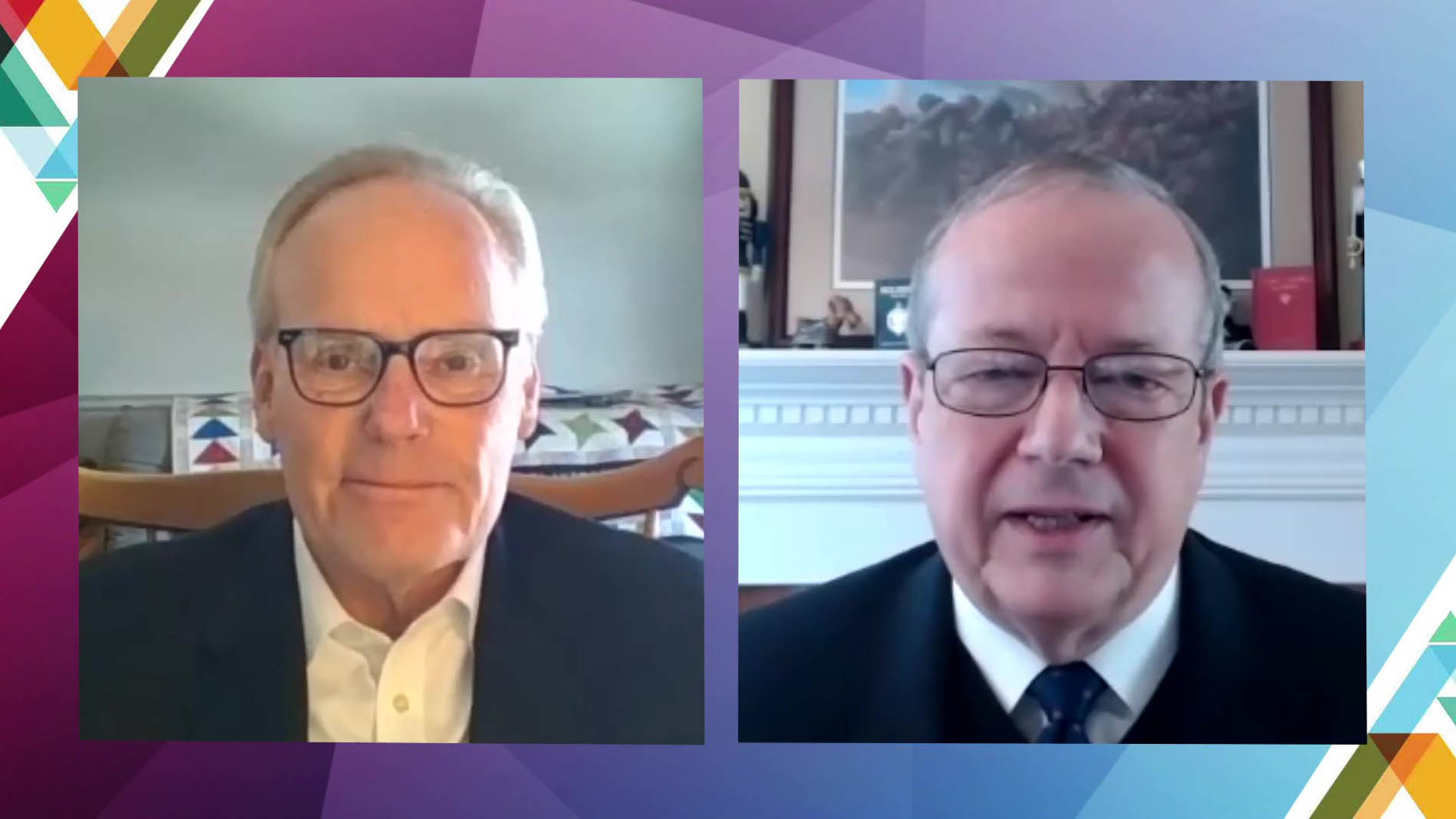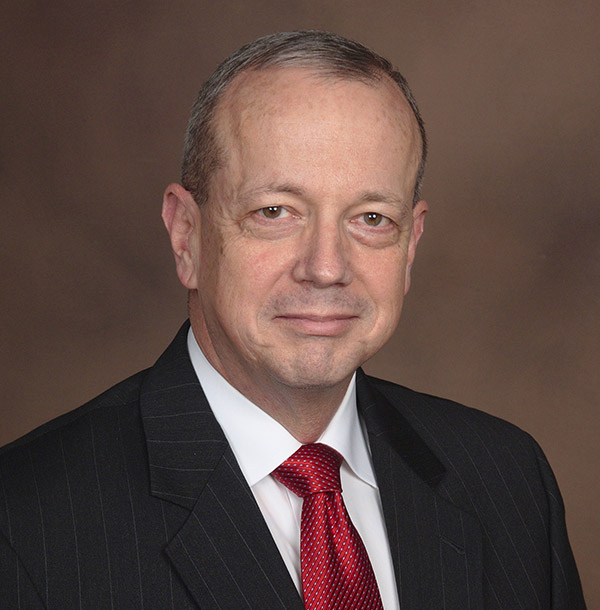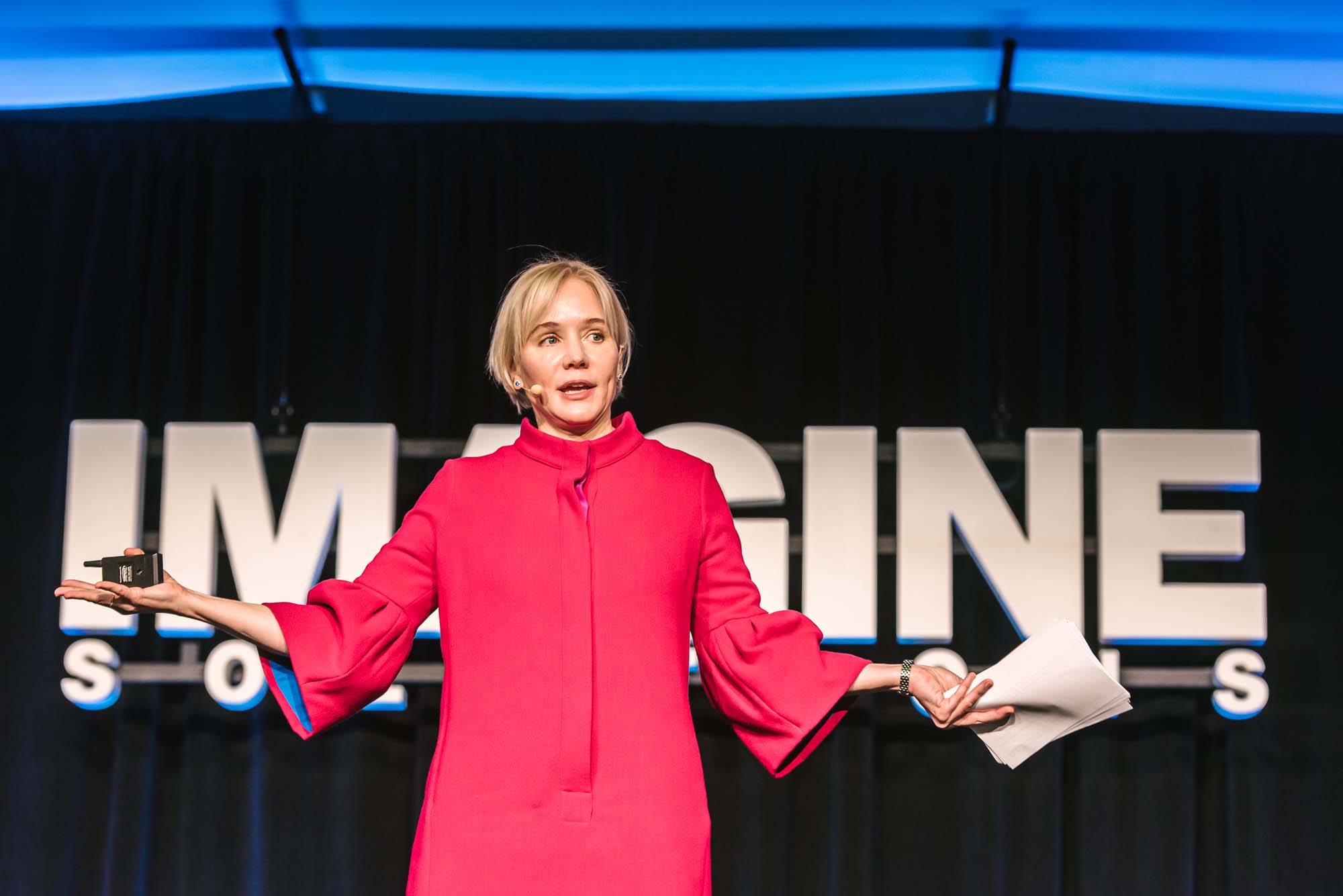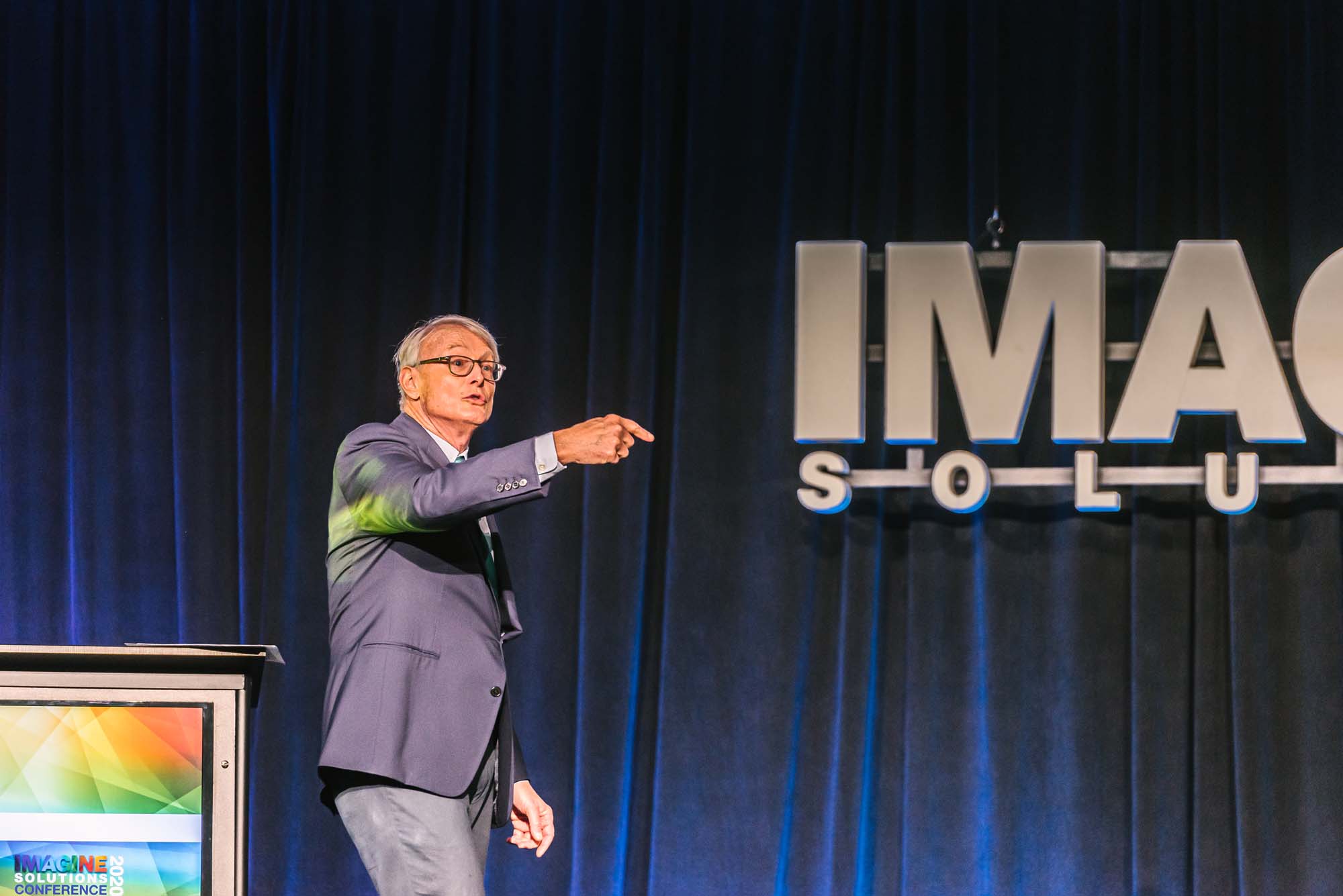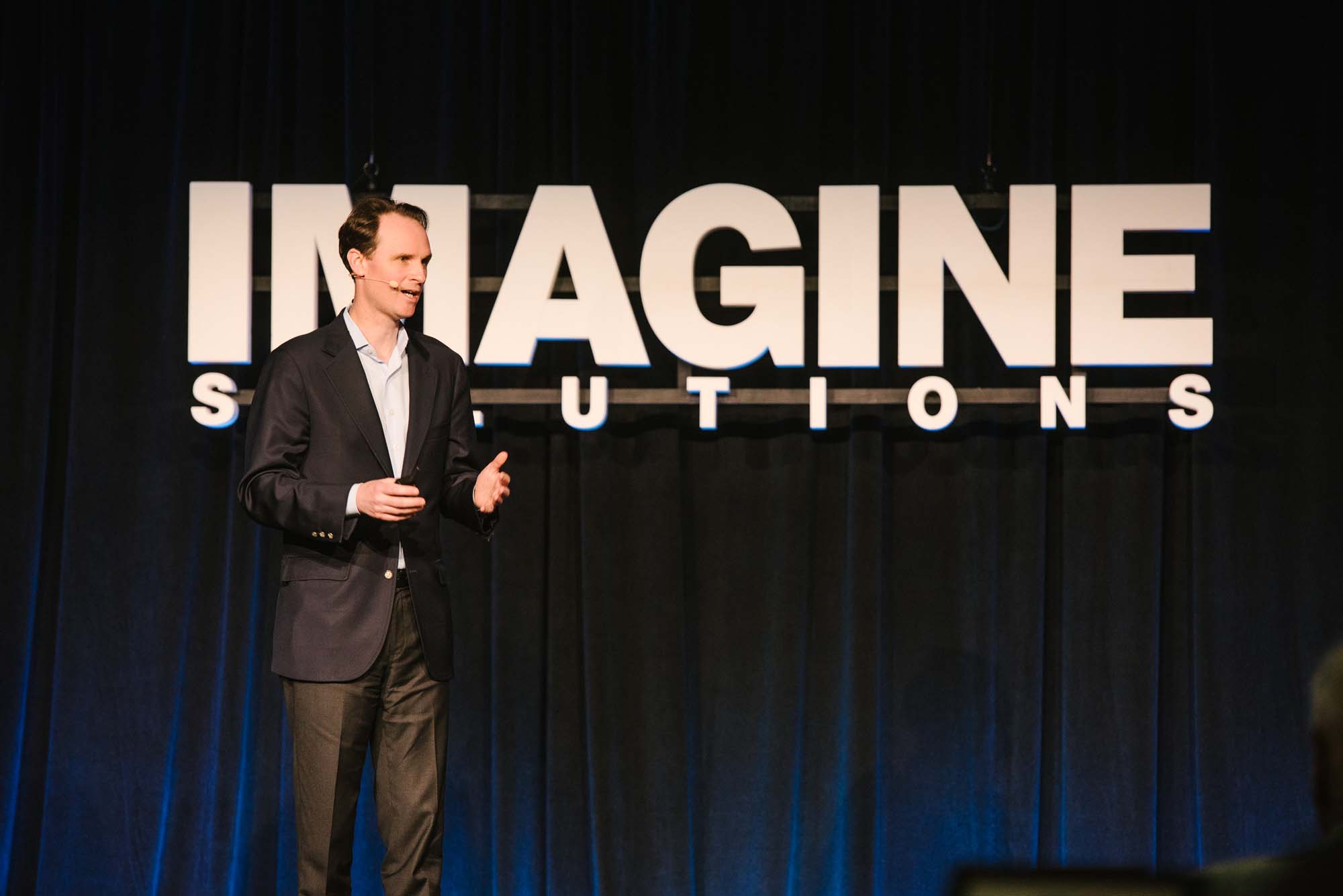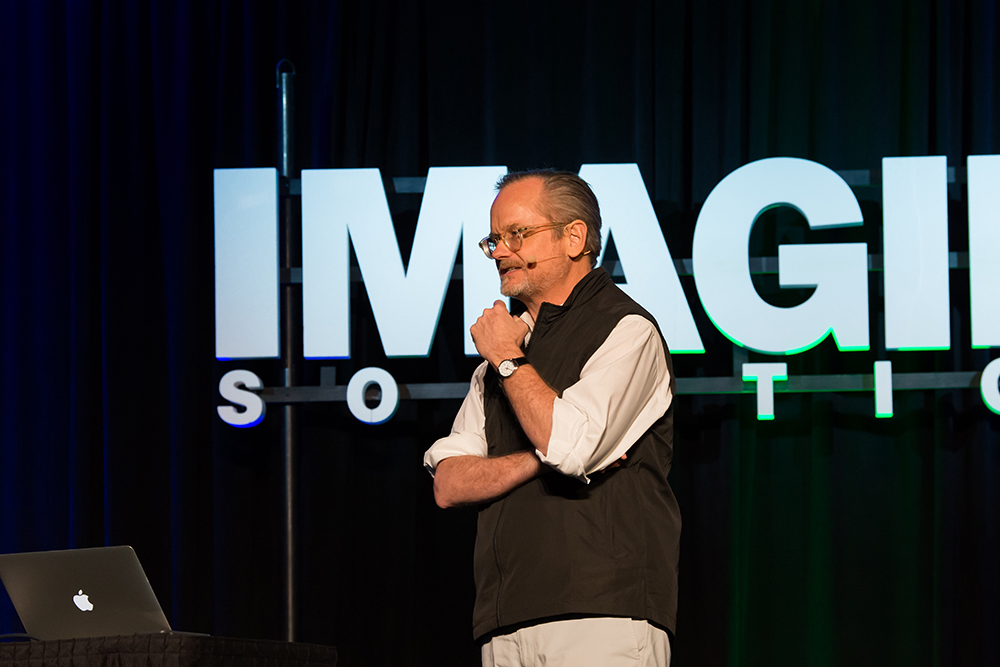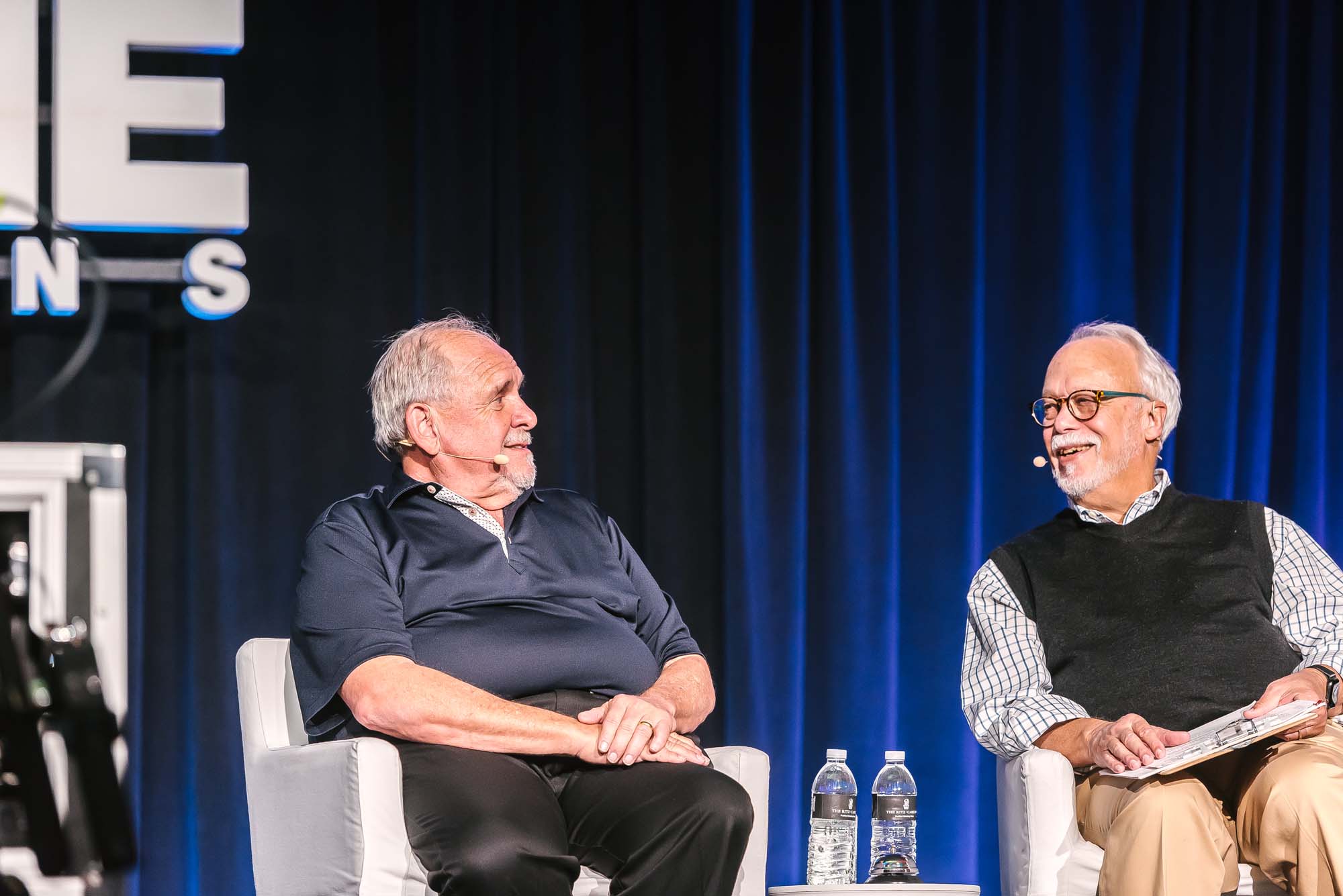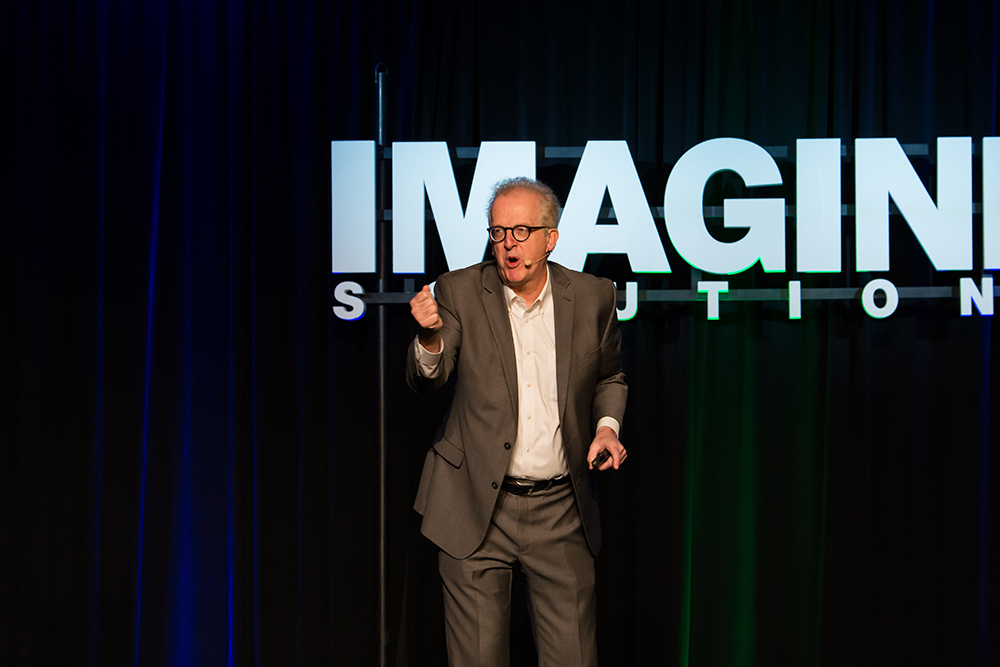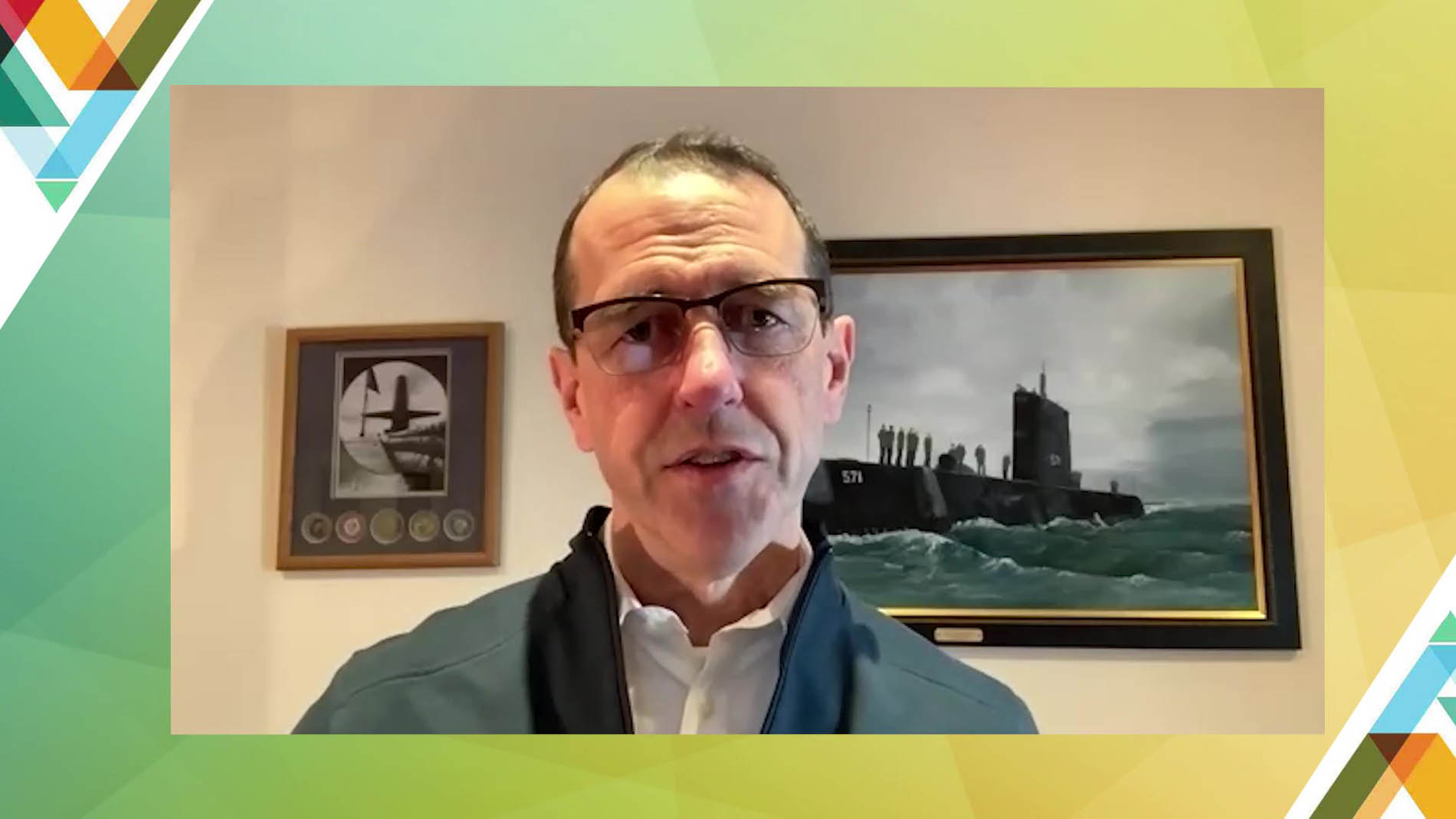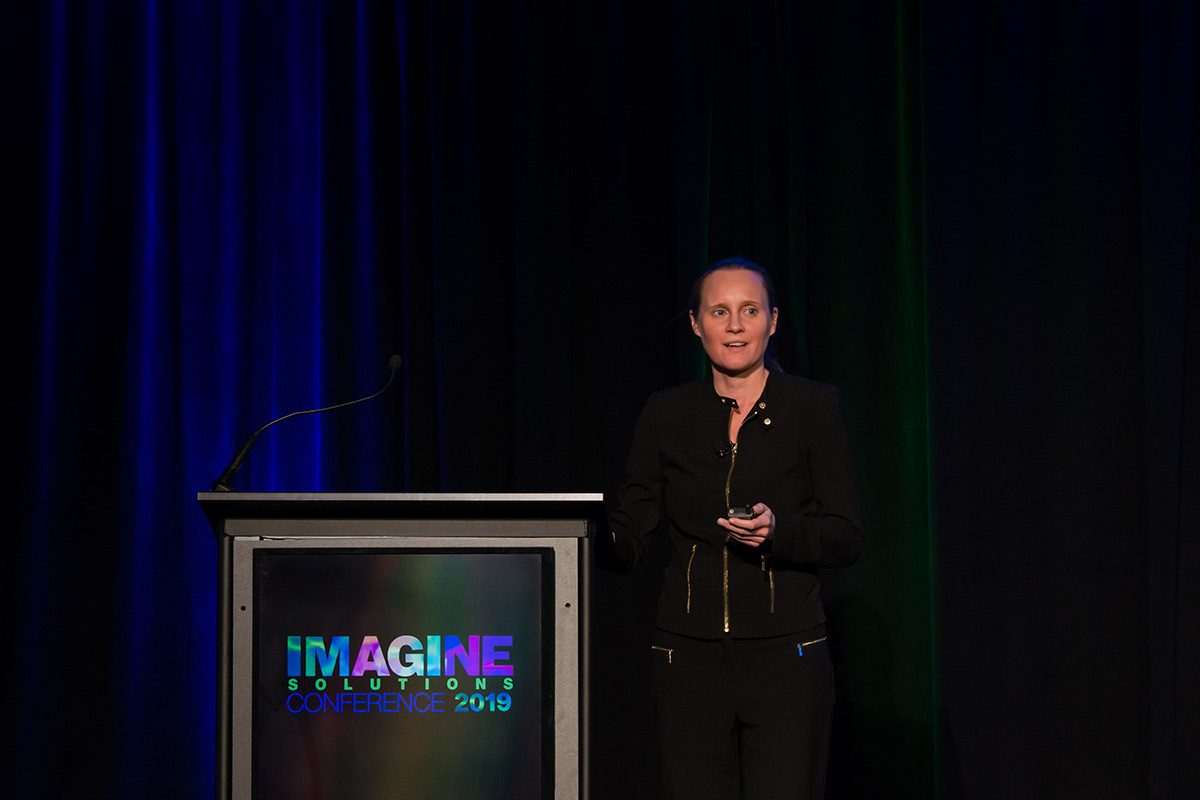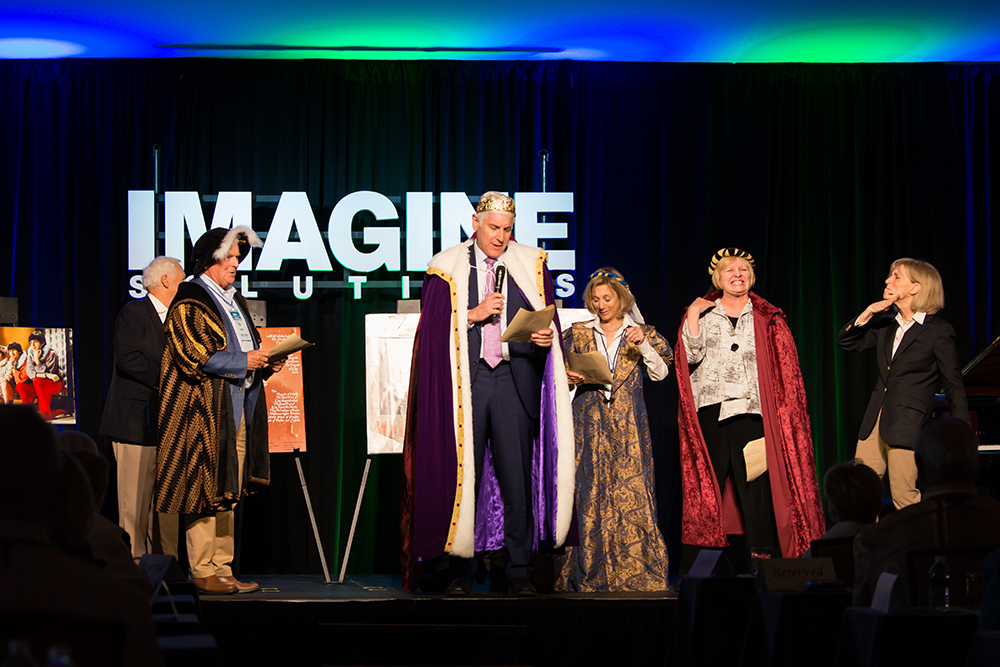Ideas for Solving Problems
John discusses with Tyler Mathisen their “Blueprint for American Renewal and Prosperity
00.00
i interview retired four-star marine corps general john allen he's now the ceo of the brookings institution in washington d.c one of the most respected think tanks of all the topic broadly speaking is policy priorities for a changing america and a changing world sounds dry it is not we talked about much much more than just that including what he sees as the greatest risk to america now ladies and gentlemen general john allen general john allen assumed the presidency of the brookings institution in 2017 and before that for nearly four decades he held a variety of appointments in the u.s military including a four-star general rank during which he did practically everything from fighting isis and al-qaeda to leading u.s troops in the afghanistan theater of war after that he became a diplomat holding very sensitive posts
01.00
in the obama administration uh and today he gets to spend his time in a job that when we were speaking before i describe as the job i would love to have because he gets to spend his time with very smart people talking about things that are extremely important and extremely timely in the united states he knows all the players in diplomacy international security cyber warfare intelligence the military and more and we welcome general john allen uh to join us today general welcome good to have you with us matter it's great to be with you thank you very much for the interview let me begin without taking us down a a rabbit hole of of political uh uh discussion you've been around washington a long time we've just had a change of administrations let me begin by asking you how is washington different today than it was a month ago well first it's good to be with you and i'm glad to contribute to this great
02.01
forum that uh has such a great reputation for ideas and helping us to think about today in the future uh i think there's in many respects and and in many quarters of washington today there there's a sense of relief uh there is a sense that uh given the enormous challenges that the country faces today that the the current administration the administration that was just inaugurated last month is working very hard on behalf of the american people writ large on these major issues and whether it's covet or the struggling economy or issues associated with the racial and social reckoning that we had in 2020 or on the broader international front in particular issues associated with climate and enhanced or a return to a commitment for multilateralism there's there's a sense
03.00
that it's it's very different in washington now and i think on in in most cases and in most quarters that seems to be a very positive change yes let me let me ask you just for those who don't um know about the brookings institution give us a little bit about its history what it does today how it was founded and the kinds of projects research and otherwise that you do right now to um to advance the cause well we take a responsibility to do good uh very seriously at the institution it's it's probably the oldest continuously operating uh u.s think tank and very likely the oldest continuously operating think tank in the world it was formed by a group of government reformers in 2016 uh as sorry 1916 uh well over 100 years ago as the institute of economic research uh
04.00
and government research there were two that were formed ultimately by the lead reformer fellow by the name of robert s brookings and he would also create a graduate school in his name and around 20 or 1927 sorry around 1927 he formed all of these together into one uh entity called the brookies institution he also founded uh washington university in uh st louis so we have a very strong partnership with that uh that great institution there so brookings had as its earliest uh inclination it's its earliest uh mission if you will economic research in the context of public policy and the united states was emerging and especially in the context of world war one and in the inter-war years it was emerging as a global player and the capacity of the government itself to do policy research was quite limited and these reformers saw this was a great opportunity and so robert s brookings and others uh began
05.01
uh in the late uh 1910s and ultimately in the 20s to begin to form the capacity to do systematic very serious systematic research and it was not surprisingly mostly about economic matters so the institution continued to to operate of course at the end of the spanish flu across the great depression across world war ii and at the aftermath of world war ii as we began to see this uh bipolar world emerge between the soviets on one side and and the west led by the united states on the other it became very clear that there was going to have to be an enormous geostrategic geopolitical uh unity in our way going forward and brookings wrote the initial documents the institution wrote the initial documents that would eventually become the marshall and we're very proud of that and it really shaped a capacity for a singular vision for how the future should look in the world
06.01
amongst what would become the free world in the in the context of the cold war rookies would go on to provide very important analysis to the johnson administration on civil rights legislation some of the initial work by brookings would eventually end up in the establishment of the national aeronautics and space administration nasa we've done a lot of very important work and again in the last few years on issues associated with geopolitics and so today as brookings got larger and ultimately had a greater breadth of public policy uh initiatives to embrace and imperatives to address we became organized along six principal areas five research programs and a major initiative economic studies governance studies metropolitan policy studies which focuses largely on american mid-sized cities but we do work on the larger cities as well the
07.00
global economy and development which is an outward-facing uh research program and then finally foreign policy where we also do defense research and i said there were five programs and an initiative that the initiative is artificial intelligence and emerging technologies which is a new uh a new area of study for brookings but we're very very proud of that work because of course ai and emerging technologies will define so much of global politics in the years going forward and we're very proud this year in the university of pennsylvania think tank rankings uh to be first among the think tanks on the work that we do about artificial intelligence who do you not who do you work for but who are the consumers of the work you produce very quickly well we want to we want to be unifor universally uh applicable so clearly when i became president clearly one of the things that we wanted to focus on was to help the president to govern president united states to govern and the congress to
08.01
legislate and it it's not about donald trump or the current congress or the congresses that we've seen in the last couple of years it's about the president and his or her administration it's about the congress so they are consumers of our public policy research and as you might imagine given the fact that 19 brookings scholars have gone into the bible administration to include the secretary of treasury janet yellen um the receptivity uh of this coming administration as it begins to get its legs up under it the by administration will be quite large to our work but it's not just there those who need to consume policy recommendations or um the the reform of policy they're not just in the administration on capitol hill we we work with governors we work with mayors we work with advocacy organizations you know national entities for education we're national entities for child development so we do a lot of work across a whole variety of areas and we our efforts are consumed
09.03
by a wide variety of leaders who are engaged in public policy just this morning i received an email from a very senior afghan diplomat thanking us for some of the work that we have done on the afghan peace policy and peace proposals going forward so we're consumed around the world but also in the united states as well i think there's a feeling uh in in part because of what you just referred to that a number of your scholars have moved into the biden administration that brookings it is often described maybe sort of ham handedly in the media as a left-leaning or a liberal think-tank is that a fair fair shot truthfully tyler i have no idea what those terms mean anymore to be quite honest with you um if they want to describe us as that because we stand for values we stand for principles we stand for human rights we stand for the rule of law free speech and of free and independent media you can call us whatever you want to but we believe very very strongly in the
10.02
principles as as developed by the constitution we have a very strong uh emphasis on social justice and in particular uh we are doing a great deal of work now on race justice and equity uh so they can call us whatever they want to the bottom line is what we produce is evidence-based uh data-driven uh public policy analysis that is intended to do good and ultimately to assist our our government in doing good so as you look across the intersection of what's going on in the world and the challenges that the world and the united states faces right now and you look at your work and your team of scholars give us one two three areas of real focus and and sort of of critical importance as you see the world right now what are the three things that the country uh and and the world and brookings
11.02
need to focus on at this moment in time sure i'll give you three or four but i'll be brief uh first is obviously supporting uh dealing with this pandemic it has changed everything the fact that you and i are not sitting in the same room is a function of the the pandemic it has changed so much not just in the united states but around the world the second is and the companion dimension of the pandemic is the tanking of the american economy and what it has done not just to the economy what it's done to the third area that we're spending a lot of time on and that is those vulnerable populations in the u.s society the the populations of color the tribal populations the indigenous population so many of them have suffered enormously from this so we're spending a great deal of time right now on all studying and recommending public policy approaches to all of the dimensions of how the pandemic has has strickened the the american people but more broadly the
12.00
the global population than the economic implications than the issues associated with social justice but we're also very focused on the international dimension as well in particular with this administration's intent to pursue multilateralism there's a great deal of work that we can do to support that and brookings as a platform has enormous credibility around the world for example just last thursday i chaired the u.s delegation the brookings delegation in a bilateral conversation with very senior chinese health officials but some from the government as well led by my counterpart who's the president of xinhua university in beijing on how we move forward potentially as uh two countries in dealing with uh this issue associated with the pandemic but we're also focused very heavily globally on issues of climate so those are areas that we're touching all the time and brookings institution is really focused on that
13.01
let's talk about about where you see the united states right now in terms of the divisions that exist in the culture and the society and get get your take on it president biden has said that one of his goals is to heal some of the divisions that uh have manifested themselves in in american society over the past few years and they didn't just happen over the past four years it's been a building uh kind of uh wave i would say if i can indulge in an opinion there but but how do you how do you and the scholars at brookings think about that how do you get a hold on researching it and and then publishing papers and and scholarly conversa and and indulging in scholarly conversations about it well it may be one of the great challenges we face as a country right
14.00
now the the outcome of the election uh not just in terms of the numbers who voted for the two principal presidential candidates uh but the polarization that occurred around the election itself uh with the with president trump uh proclaiming right to the moment of the inauguration that it was stolen from him uh this hardened a lot of the of the polarization uh that has existed in the country for a long time but as you properly uh state tyler this is this is not something that began with the trump administration it had been building for many many years and in some respects it was a direct uh uh lineal descendant of the of the outcomes associated with the 2008 economic uh the you know the great recession the economic downturn and our inability really as a nation to uh address all of the outcomes of that and so while there are very serious social uh divisions within our society many of those can be defined by the economic situation
15.03
in large segments of the population and be because there have been there has been and continues to be and my hope is that we'll resolve it starting relatively soon these major uh divisions of equality in our society whether it's in the context of our black or our brown populations whether it's the tribal populations or inequality associated with gender all of those things exacerbated by major economic challenges and the failure of globalization to deliver on the promises of many of the political elites over the last several years and a sense increasingly by that segment of our population the white element of the population that has been disenfranchised often by the downturn in american manufacturing and jobs going overseas the sense of dissatisfaction over their economic straits uh the sense of abandonment by american political leadership that has all combined uh over a period
16.00
of years now to create tensions and divisions in our country uh which were slow in the building uh but have created enormous challenges just in solving the issue of covet the the the politicization of the solutions to covet whether you wear a mask or not whether you get the vaccine or not uh it has echoes in the challenges we have within our society so there's a lot of work to be done it can't come from washington it's got to be assisted from washington stimulus packages etc are helpful but just as these issues were long in the building at the societal levels in cities and in counties and in states it is there that we have to rely on leaders of goodwill and bipartisanship and an intent to to govern at the grassroots level to lead us out of this and washington can do just so much but what we want to do at brookings is to appeal to the grassroots level to begin to heal these divides economically and socially especially on the issues of equality as
17.02
we go forward if we don't do that we have no hope of ever solving these rifts and healing and healing as a people are there sufficient leaders of the of the kind of good will that you say is uh critical to to bridging the divides are there sufficient leaders on both sides of the aisle as the saying goes to do that well if you only watch the media right now you would be exposed i think to the the sense of irreconcilability politically at the national level and we've been here before we've had very very difficult moments in our history where it seemed very difficult for the one party to speak with the other one of the points that i tried to make a moment ago which is that so much of the healing has to occur at the local level it almost makes no difference what party you're from uh the challenges in in my county or the challenges in your county or the challenges in your small town often completely defy political
18.02
orientation and it's there where leaders of goodwill that have to live with those problems every single day really offer us i think the greatest hope to bring people to the table uh regardless of their political political persuasion and begin to try to solve these issues the first thing we have to do is try to restore respect uh that respect has been lost in so many ways around the country and and sadly the last four years in particular uh has driven a sense that if we have a difference of opinion we start the conversation from being enemies we've got to stop that we've got to be able to have the conversation over difficult matters uh that's that comes from a place of respect and is operationalized through the tool of civility and often as we saw on the 6th of january uh the the loss of civility has its most extreme operationalization in the kinds of mob mentality and and mob uh activity that we saw that day so it's
19.00
got to start with respect it's got to be operationalized through civility and it can't only come from washington washington point to it washington could try to set the conditions ultimately for a national dialogue but that dialogue has got to be held at the state county and municipal levels at the local levels in this country and it's going to take a long time it won't happen tomorrow i want to move on to international uh uh things which with which you're so familiar but i i i was just struck by something you said a moment ago and that is if you had asked me three years ago or two years ago what could possibly bring the country together and unite the the factions on the wings i would have said some sort of national emergency a war maybe something like that well we had a national emergency we're in the middle of a national emergency uh in this pandemic and it has done very little to unite the country in fact i think you just made the point uh that we've div it's it's divided us
20.00
it's become politicized in a way uh that that was perhaps unforeseeable or maybe it was foreseeable but but be that as it may it seems to uh have added to the divisions in the society rather than then brought the two sides together let's take a global look now um since you spent parts of your marine career fighting isis combating al-qaeda are those two threats have they been mitigated and put in a box or do they still exist are they still a risk to the united states into global security no they're still out there and they're quite lethal and we should be very attentive to them uh the challenges that we have from al qaeda and the islamic state with the arabs called daesh from separatist jihadist elements that may be coming out of kashmir that are now even more radicalized than they were before we should be very attentive to them uh one of the challenges has been with the united states having stepped back over
21.01
the last four years much of the leadership that we would otherwise have exerted in the context of of coalition approaches to dealing with these threats much of that leadership disappeared number one and number two many of the countries themselves because of the nature of the disease of the pandemic were forced to look inward and have to expend a lot of their resources simply to get control of their public health situation so in in many respects while we have uh pushed back hard on al-qaeda around the world we push back very hard on the islamic state in iraq and syria the islamic state still still exists in some fairly virulent franchises around the world and these these strains of jihadi uh terrorist elements and insurgencies they still exist in the world we should be very attentive to them my guess will be that under this administration uh with this national security advisor
22.00
with this new uh director of national intelligence of real haines um with lloyd austin at defence we're going to pay you'll see us paying a lot more attention to them in the context of the kinds of coalitions that will be necessary both for to preserve the stability of our allies but also to begin to to deal with the long-term causal factors within those societies that create such a large radicalization and tyler let me make one quick point to your last comment about kovid kovid was a national crisis covid is the enemy but the challenge was as covet exploded on the national scene president united states never treated it as the enemy the president united states treated it as an opportunity for him to make political capital vis-a-vis his own intentions with respect to the republican party and the democratic party no war we have ever fought with the enemy did we find ourselves taking a position one way or the other about the enemy inside the united states body politic
23.00
and that's what we did and it's so confused the american people that uh we've been unable to put together the kind of unified coherent national approach to this that would have typified an american approach to an external enemy attacking the united states and killing 450 000 americans as you uh as you look at the world today what is the greatest or it can be a a non-state uh actor like isis or al-qaeda or any of several other groups or a state actor who poses or what poses the greatest security threat to the united states or economic threat to the united states china russia iran north korea what climate i believe climate is the greatest long-term threat to the viability of the united states and many other countries like ourselves over the long term we have to be able to see to what i call the deep horizon that's as much as a generation or more in the into the future
24.00
and we spend a lot of time at brookings looking out uh to 50 years 2070 what will the world look like just from climate in 2070 and there are security threats that we deal with we call the four plus one formulation with china and russia iran and north korea and the plus one is what i just described a moment ago the strain of jihadist terrorist insurgency that we're going to have to deal with those are those are immediate security matters that we have to deal with but there are other kinds of if you will functional security matters that we really have to be attentive to the first is nuclear proliferation the non-proliferation capacity has been dramatically weakened in the world over the last uh 10 15 20 years or so the second is is biological terrorism you know we're suffering right now one of the worst attacks that you we have we have in a hundred years from a biological agent if you will uh the covet 19 pandemic so the whole
25.02
issue associated with the biological challenges whether it's intentional or whether it's not in the context of the weaponization of biotechnology is a real challenge for us going forward the third is climate climate has economic it has societal it has biological uh challenges associated with it has real physical challenges with changes in weather patterns and sea level rise and the warming of the seas these things will cost us tens of trillions of dollars against the the global economy over the next 20 30 40 years and we've got to take the steps necessary now as a global community to begin to deal with that or will exacerbate so many of the other problems we have and frankly when conservative estimates of 150 million climate migrants between now and 2070 are put on the table when you remember that just two million syrian conflict migrants dramatically changed just 2 million dramatically changed the politics of europe
26.01
in so many ways just imagine what 10 percent of 150 million climate migrants going to europe because there are large areas of africa for example that become climatologically untenable imagine what that will do so while we have security threats in the traditional sense of how we use the term security threat potentially russia china the iranians and the koreans north koreans we have real environmental and planet security threats that we have to be thinking about uh out to 50 years and if we don't deal with those threats at the deep horizon while we're dealing with the physical security threats up close and we do them together we're in a very serious situation about 2070. before we wrap up and i have to be mindful of time i could spend the whole day talking to you uh you mentioned at the top of our segment the uh initiative that you guys have in artificial intelligence i'm going to ask you a question that that bears on artificial intelligence
27.00
but maybe maybe sort of tangentially and it is this how ready is the united states both private enterprise and the government uh for cyber warfare and and malicious attacks on the on the cyber infrastructure the internet infrastructure that now is so critical to the functioning of the economy yeah we're very vulnerable still and we're going to have to continue to work in every way we possibly can artificial intelligence offers us a potential solution the cognitive defenses that artificial intelligence can bring to the internet of things to create both protection and stability for our our existence on the backbone of the internet that defines our world today the cyber environment in fact in the context of security the cyber environment in many respects is becoming the decisive environment within which conflict can be waged and while we'll still find ourselves
28.00
having to deal with conflict in the physical environment the cyber environment is one that will be with us in a very long for a very long time and our vulnerabilities the inherent vulnerabilities that come from being a free and open society on an internet where we want the traffic of ideas to make us better and stronger that also is a vulnerability and we don't want to have to shut down the internet we don't want to have to shut down components of the internet we have to be able to defend ourselves and as i think you know we are reeling right now under once again another russian based uh intrusion in into our internet uh and in into uh a whole number of our government government agencies and the into the private sector as well and so it's a continued uh uh trumpet call if you will for us to continue the the process of uh of improving our cyber security uh as the cyber domain becomes even more prominent in the american way of life final question we've talked a lot about
29.00
threats we've talked a lot about risks we've talked a lot about uh divisiveness in in our society and injustice the final question is i think a simple one but a very hard one to answer are you optimistic about the united states and the fate of the world and if so why i am optimistic actually i'm pragmatic about the challenges that we face and how some of those could go very badly very quickly but i am optimistic uh with this administration with the leadership that we now see with i think people having been brought right to the edge on the 6th of january of seeing just how bad this can be with the the social reckoning that we have seen over the summer of 2020 while it has pointed out that we have enormous challenges not just domestically but enormous challenges around the world i do believe that we have seen us moving with real uh deliberation uh and very serious uh consideration with respect to how we do
30.01
better domestically and how we in a multilateral sense can do better on behalf of of the global population whether it's about the disease or economic recovery or multilateral approaches to the great challenges of climate i am optimistic i'm cautiously optimistic at the moment but i am optimistic i'm inherently an optimist by by by birth but i also see that there is genuine reason for optimism now and i'm going to continue to embrace that as we think pragmatically about the kinds of public policy research we can do and undertake not just to improve the the capacity of this government to be effective but also the community of nations also general alan thank you so much for your time today and your insights we really appreciate it great to be with you tyler thank you very much

